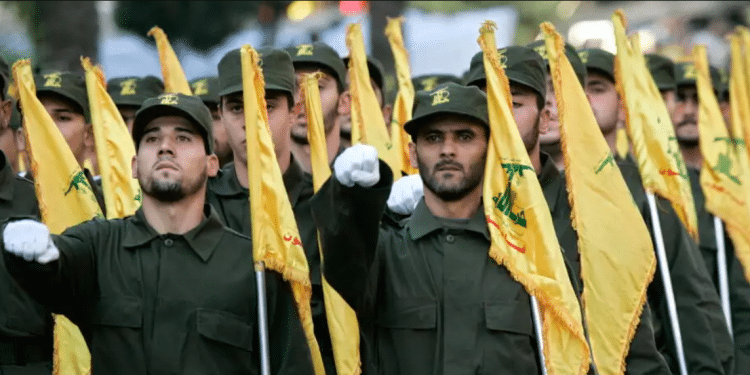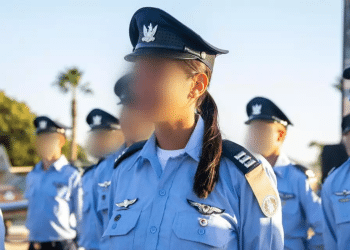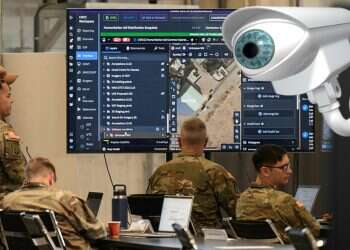Israel Hayom can exclusively reveal that global trends, Iran, and the Palestinian arena present the triangle lying at the heart of the annual intelligence estimate of the IDF Intelligence Directorate that has recently been prepared.
Follow Israel Hayom on Facebook, Twitter, and Instagram
The intelligence assessment that has been compiled in recent weeks will soon be presented to Israel's civilian decision-makers. It offers a wide-ranging analysis of the various challenges Israel faces in 2023, along with the opportunities that could be seized.
Unlike past estimates, Iran is not the main focus: It may be the most important and complex challenge, but the directorate views it as just one of the pieces in a much larger puzzle that have interconnected parts that wield influence on one another. The estimate puts global trends that impact Israel and its security as one of the points of the triangle, noting that the instability outside Israel has mainly emanated from the US-China clash, which is expected to continue and even intensify.
The directorate points to the ongoing conflict in Ukraine as one of the forces that exacerbated this trend, especially when it comes to its impact on Europe by shaking its core security, without cheap gas from Russia and with cutt-off supply chains from China (due to contracts that had been abrogated).
Failed states around us
The estimate also points to the ongoing changes within the US as one of the issues that Israeli policymakers should address in order to preserve the special relationship. Although those changes - mainly demographically oriented, with clear political impact - have yet to have an effect on the relations between the two sides (especially not on intelligence-security aspects, which has been reached new heights), they must be tended to regularly so that Israel won't find itself undermined on a strategic level. The global trends also have an effect on the Middle East. Egypt and Jordan, for example, have been going through unprecedented food and economic crises due to the rising prices of grains and the war in Ukraine.
Egypt has already received a three-billion dollar aid package from Qatar (and is likely to ask Doha for another such package) and is heavily dependent on grains bought by Saudi Arabia on its behalf. The intelligence analysts say in the estimate that this crisis – which adds to the ongoing transformation of Lebanon into a failed state – could have far-reaching regional consequences, and Israel must do its utmost to help Egypt and Jordan, such as with desalination projects and the laying of solar panels that could help solves the water and energy crunch in Jordan and thus reduce the threat of discontent.
The second point in the triangle challenge in the coming year is Iran. This is not limited to the nuclear issue, albeit it being the main component, but extends to a birds-eye view of the Islamic republic as an all-round player. Israel has recently noted Iran's increasing involvement in the efforts to encourage terrorist activities in Judea and Samaria in order to cause tempers to flare. This also makes the Israel Security Agency (the Shin Bet) duty-bound to increase its involvement in the Iranian issue, including by forming joint task forces with Mossad and the IDF Intelligence Directorate.
The Iranian meddling in the region will continue on other fronts as well. In Gaza, Iran is the exclusive financial benefactor of the Palestinian Islamic Jihad and the main funding source for Hamas. In the northern arena, the directorate assesses that Iran is resigned to the fact that it had failed in its effort to establish a foothold in Syria, although it will continue to act to arm Hezbollah - especially with precision-guided munitions but also by supplying it with cruise missiles and precision-guided armed UAVs - such as those that it has been supplying Russia in its war against Ukraine. The directorate also assesses that in 2023, Hezbollah will continue to be mainly preoccupied with internal Lebanese issues, and will be deterred from waging war.
However, a dynamic of escalation could result from various developments, including tactical activity on the ground. Such dangers were posed by the crisis that emerged just before the two countries signed a maritime border deal to resolve the natural gas issue: Hezbollah was gearing up for an escalation, although it would eventually be glad that it was averted when the deal was signed. The global trends will have far-reaching ramifications on that front as well because the collaboration between Russia and Iran in Ukraine could project on the northern arena and even on the nuclear deal. This has so far not happened, most of the deals between Russia and Tehran are economic and civilian, and Russia has made sure to pay with cash for the UAVs so that it would be limited in what it offers in exchange. But Israel should continue to act vis-a-vis Moscow to make sure that this situation continues into the future, the estimate says. When it comes to the nuclear issue, the estimate says that Iran will continue on its current path of slow progress, without crossing red lines.
This will be the case in terms of its enrichment activities, where it will continue shifting operations to the bomb-proof Fordow plant, as well as in its weapons group, where Iran has been carrying out all the necessary preparations for the moment in which the supreme leader will give the go-ahead to break toward a nuclear weapon.
The post – Mahmoud Abbas era
The intelligence directorate believes that Iran will change course only if it is faced with radical steps from the outside, which could trigger it to enrich uranium to military-grade of 90% purity. Israel, the estimate says, must prepare for that by devising military and diplomatic contingencies so that it won't be surprised. Here, too, the global trends, and especially the war in Ukraine, will have far-reaching consequences for two main reasons. The first is that the world has become used to the ongoing talk on nuclear weapons The second is that the war in Ukraine has taught the world that countries should not give up their nuclear weapons and that a nation that holds that power feels confident that it won't lose a war. The third side of the triangle in the assessment for 2023 is the Palestinian arena. Unlike the past, the IDF has not looked at Gaza and Judea and Samaria as two separate arenas, but as one unified realm. The main emphasis in that estimate is on the day after Palestinian President Mahmoud Abbas and where the Palestinian Authority might turn.
The Hamas rulers in Gaza could play a key role in this juncture owing to the organization's efforts to cast itself as a responsible governing entity ever since Operation Guardian of the Walls in 2021, and not just as a terrorist organization. This is also true for its leader, Yahya Sinwar, who has tried recently to build an image of a statesman alongside his fighter bona fides. The intelligence analysts believe that based on this rationale, as well as other reasons, the destabilizing trends of the past several months are set to continue. Iran has been fanning the flames but Hamas and terrorist organizations have also tried to do the same, and alongside this effort, there is a noticeable uptick in the lone-wolf attacks as well as localized cells taking action, such as the Lion's Den terrorist group that has been bolstered by social media and taking on the traditional terrorist organizations and the PA.




